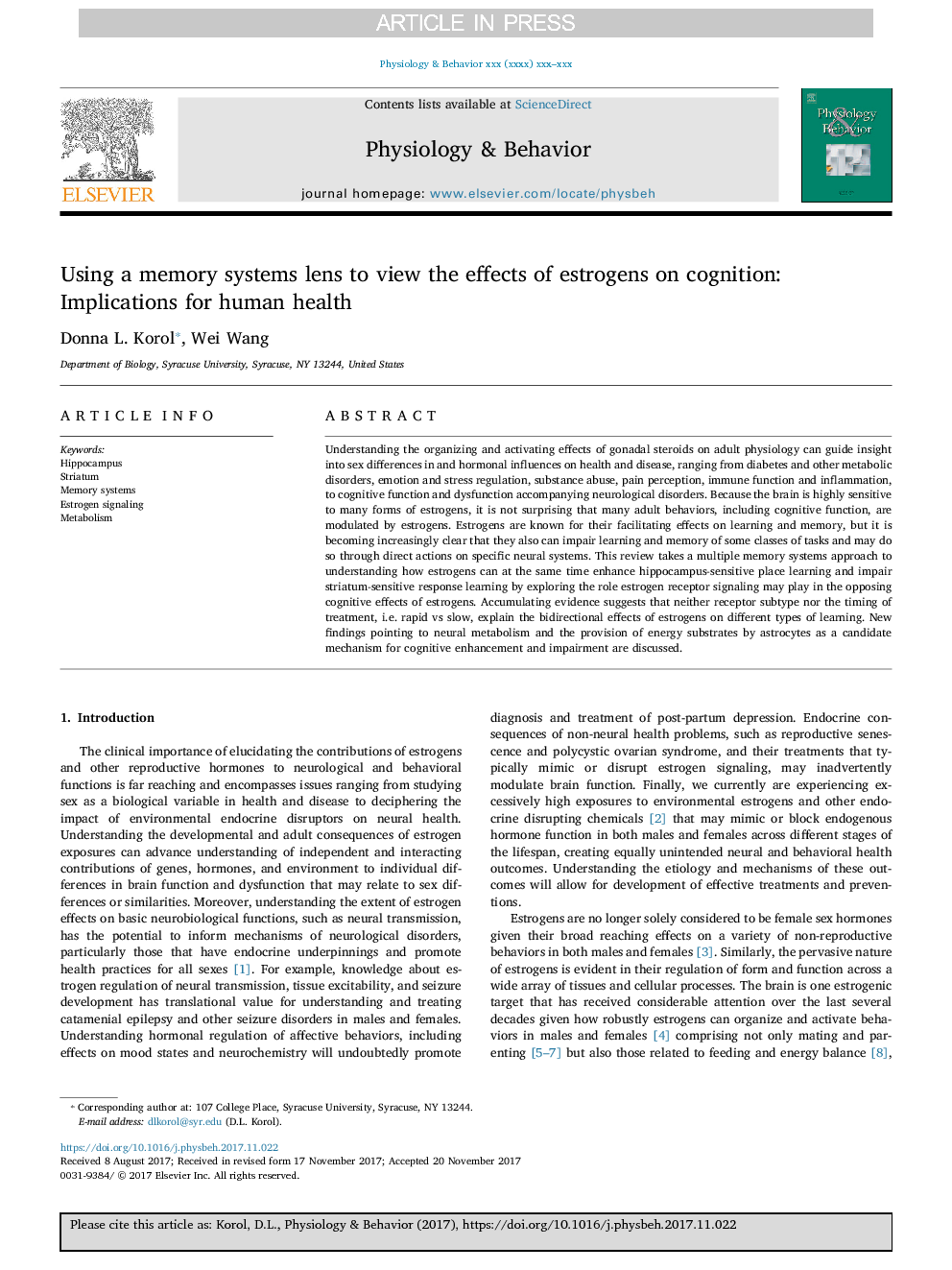ترجمه فارسی عنوان مقاله
با استفاده از لنز سیستم های حافظه برای مشاهده اثرات استروژن بر شناخت: پیامدهای سلامت انسان
عنوان انگلیسی
Using a memory systems lens to view the effects of estrogens on cognition: Implications for human health
| کد مقاله | سال انتشار | تعداد صفحات مقاله انگلیسی |
|---|---|---|
| 156054 | 2018 | 12 صفحه PDF |
منبع

Publisher : Elsevier - Science Direct (الزویر - ساینس دایرکت)
Journal : Physiology & Behavior, Volume 187, 1 April 2018, Pages 67-78
ترجمه چکیده
درک اثرات سازماندهی و فعال سازی استروئیدهای گناد در فیزیولوژی بزرگسالان میتواند بینش به تفاوتهای جنسیتی و تأثیرات هورمونی بر سلامت و بیماریها، از جمله دیابت و سایر اختلالات متابولیک، تنظیم احساسات و استرس، سوء مصرف مواد، درک درد، عملکرد ایمنی و التهاب ، به عملکرد شناختی و اختلال همراه با اختلالات عصبی. از آنجایی که مغز به انواع بسیاری از استروژن ها بسیار حساس است، تعجب آور نیست که بسیاری از رفتارهای بزرگسالان، از جمله عملکرد شناختی، توسط استروژن ها مدولاسیون می شوند. استروژن ها به خاطر تأثیرات تسهیل کننده ای در یادگیری و حافظه شناخته شده اند، اما به طور فزاینده ای روشن می شود که آنها همچنین می توانند یادگیری و حافظه برخی کلاس های وظایف را مختل کرده و از طریق اقدامات مستقیم در سیستم های عصبی خاص انجام دهند. این بررسی یک رویکرد چندین سیستم حافظه را درک می کند که چگونه استروژن ها در عین حال می توانند یادگیری مکان حساس هیپوکامپ را بهبود بخشد و یادگیری واکنش حساس به استریتوم را بررسی کنند با بررسی نقش سیگنال گیرنده گیرنده استروژن ممکن است در اثرات شناختی متفاوتی از استروژن ها بازی کند. شواهد جمع آوری شده نشان می دهد که نه نوع گیرنده و نه زمان بندی درمان، به عنوان مثال سریع و ارزان، اثرات دو طرفه استروژن را در انواع مختلف یادگیری توضیح می دهد. یافته های جدید نشان می دهد که متابولیسم عصبی و فراهم ساختن زیربناهای انرژی توسط استروسیت ها به عنوان مکانیسم نامزدی برای افزایش و اختلال شناختی مورد بحث قرار گرفته است.

